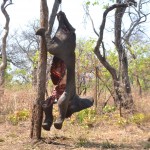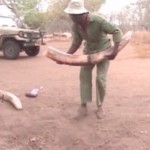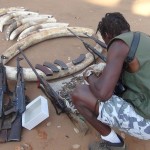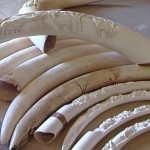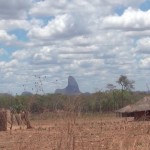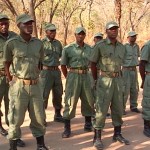“BEWARE THE AVALANCHE (PART 2)”
A SPECIAL ASSIGNMENT INVESTIGATION
Hills and mountains of granite, their contours echoing Mozambique’s endangered wildlife… This is Niassa, the largest province in Mozambique. It is from the Niassa Reserve – an area twice the size of the Kruger National Park – that Special Assignment conducts the second part of an investigation into ivory poaching.
Our investigation takes us to the remotest parts of Mozambique, bordering Tanzania. Today, levels of poaching in both countries are now the worst they have been since 1989, when CITES declared an international ban on the ivory trade. Yet despite the ban, between 2009 and 2014 a staggering 170 tons of ivory was smuggled from Mozambique, via Tanzania to China, by international poaching syndicates. And the scourge is spreading southwards. For several years, conservationists have been warning of the threat of an ivory avalanche in South Africa – a country where elephants, unlike rhino, have been protected from poaching. Tragically, the avalanche is already here, driven by poverty, competition over habitat between rural communities living in reserves alongside wildlife and, of course, the seemingly insatiable demand for ivory in Asia.
But poaching is also on the rise because the authorities lack the will to effectively counter it. More sinister is the reality that police officers, customs officials and politicians are directly complicit in the trade. In Tanzania, for example, several ministers have been publicly named and shamed in parliament for their involvement in ivory poaching. Yet none of them have been charged. In Mozambique, a similarly lacklustre response prevails to accusations of corruption levelled at police station commanders, port authorities and border police. While every effort is being made on the ground to combat the smuggling both of ivory and weapons, on the part of anti-poaching task units at Mozambique’s wildlife reserves, their initiatives are being hampered by a shortage of resources. Furthermore, once arrests have been made, the suspects are often released, or escape, after bribing police officials. To date, Mozambique has yet to successfully convict a poaching kingpin.
This week, in partnership with Mozambican investigative journalist Estacio Valoi, Special Assignment visits Mecula Police Station close to the Niassa Reserve, where two notorious members of a poaching syndicate – Paolo Nyenje and Antonio Bernardo – were recently incarcerated for poaching and weapons possession. Although they have been arrested several times before, they have managed to pay their way out of Mozambique’s evidently malleable arm of the law. Will the outcome of their recent re-arrest be any different?
We also accompany scouts from the Niassa Reserve to the village of Chamba, intersecting the border of Mozambique and Tanzania, to investigate reports that members of Niassa’ s anti-poaching task units were assaulted after arresting a suspected poacher attempting to cross the border into Tanzania. Shockingly, the perpetrators were not poaching syndicates, but members of the Mozambique Border Police – the very authorities who should be fighting alongside the reserve rangers to combat poaching.
Yet in this starkly beautiful, remote region, nothing is as it should be; poaching has already wrought severe changes in the ecosystem, severely altering normal animal behaviour patterns. Furthermore, while impoverished rural communities are prevented from killing wildlife for food, trophy hunting is allowed, even of elephants. And while touch of the revenue from hunting concessions is earmarked for conservation, anti-poaching initiatives and community empowerment, there is little evidence of its benefits in the daily lives of its recipients. These anomalies make for an explosive powder keg that could have disastrous consequences for a country, a region and a content that is rich in natural resources, yet ravaged by greed.
The broadcast of “Beware the Avalanche (part 2)” coincides with the release of two journalists who were arrested and charged with espionage after attempting to investigate rhino poaching in southern Mozambique. This incident further underscores the dangers inherent in exposing the poaching scourge afflicting Africa. Whether rhino or elephant, the stakes are getting higher and those involved in the pernicious trade of poaching are becoming more ruthless, in the cruel quest to profit from Asia’s seemingly insatiable appetite for ‘white gold’.
“BEWARE THE AVALANCHE (PART TWO)” is produced by Hazel Friedman and filmed by Sam Msibi.
It will be aired on Sunday on SABC 3 at 20:30PM. Repeated Mondays at 23:30PM.

